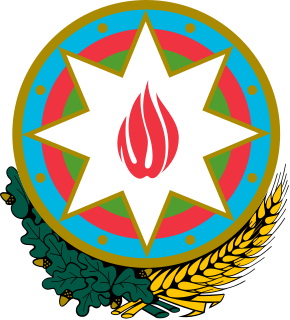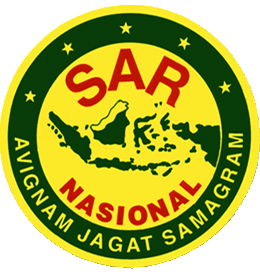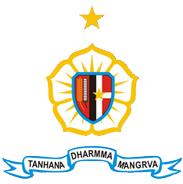
Badan Intelijen Negara, commonly referred to as BIN, is Indonesia's primary intelligence agency. Prior to 2001, it was known as Bakin ; its name was changed as part of a general restructuring of the agency. BIN is responsible both for co-ordinating information sharing and operations between Indonesia's other intelligence agencies and for mounting operations on its own.
Accreditation is the independent, third-party evaluation of a conformity assessment body against recognised standards, conveying formal demonstration of its impartiality and competence to carry out specific conformity assessment tasks.
The Standards Council of Canada (SCC) is a federal Crown corporation with the mandate to promote voluntary standardization in Canada, where standardization is not expressly provided for by law, however certification to some standards could be required through regulation. Located in Ottawa, Ontario, SCC has a governing council of as many as 13 members and a staff of approximately 110. The organization reports to Parliament through the Minister of Industry.
SANAS is an acronym for the South African National Accreditation System.

The Bureau of Indian Standards (BIS) is the National Standards Body of India under Department of Consumer affairs,Ministry of Consumer Affairs, Food & Public Distribution, Government of India. It is established by the Bureau of Indian Standards Act, 2016 which came into effect on 12 October 2017. The Minister in charge of the Ministry or Department having administrative control of the BIS is the ex-officio President of the BIS. BIS has 500 plus scientific officers working as Certification Officers, Member secretaries of technical committees and lab OIC's.
The National Institute of Metrology, Standardization and Industrial Quality (INMETRO) is a Brazilian federal autarchy, linked to MDIC, the Ministry of Development, Industry and Foreign Trade.

The Ministry of Foreign Affairs of the Republic of Indonesia (MoFA), commonly referred to as the Foreign Affairs Ministry, is a government ministry responsible for the country's foreign politics and diplomacy. The ministry was formerly known as the Department of Foreign Affairs. The name changed due to the new law about State Ministry of 2008.

The Ministry of Justice of Azerbaijan is a governmental agency within the Cabinet of Azerbaijan in charge of regulation of the justice system, overseeing the public prosecutor, maintaining the legal system and public order and instituting law reforms.

The Ministry of Culture of Azerbaijan Republic is a governmental agency within the Cabinet of Azerbaijan in charge of regulation of the activities and promotion of Azerbaijani culture. The ministry is headed by Anar Karimov.

The Ministry of Economy of Azerbaijan Republic is the central executive body responsible for implementing state policy and regulation in the following areas: formulating economic policy of Azerbaijan, producing macroeconomic projections, creating a favorable environment for economic development and growth, encouraging investment activity, developing entrepreneurship and industry, regulating the licensing and permit system, protecting, developing and encouraging competition, protecting the rights of consumers, implementing state procurement policy, ensuring full and timely introduction of taxes and other mandatory payments relating to the authority of the Ministry, in the state budget, management of government assets, privatization, establishing state land management system, conducting state registration and single state cadastre of immovable property.

The National Search and Rescue Agency is a government agency of Indonesia. Its head office is in Kemayoran, Central Jakarta, Jakarta.
The Education & Training Evaluation Commission (ETEC) is a Saudi Arabian organization established to evaluate, assess, and accredit educational and training systems. It is meant to support and promote the quality and adequacy of education and training, and to strengthen the role of education and training in the national economy.

Ministry of Research and Technology of the Republic of Indonesia was a government ministry that has the task of conducting affairs in the field of research, science and technology to assist the President of Indonesia in carrying out state. The ministry was formerly known as the Ministry of Research, Technology and Higher Education of the Republic of Indonesia.
The State Agency for the Evaluation of Public Policies and Quality of Services (AEVAL), commonly known as The Evaluation and Quality Agency, was a Spanish public agency responsible for the promotion, performance evaluation, and impact analysis of public policies and programs. The agency handled service quality management, promoted the rational use of resources, and ensured accountability to the public.

The Directorate General of Marine and Fisheries Resources Surveillance is a government agency under the management of the Ministry of Marine Affairs and Fisheries of Indonesia. Formally established on 23 November 2000 according to Presidential Decree No. 165/2000, the PSDKP is the agency responsible for supervising the marine and fishery resources of the Republic of Indonesia. The main mission of PSDKP is the prevention of Illegal, unreported and unregulated fishing in Indonesian waters, which has caused a substantial loss for Indonesia's fishing industry. In its mission to prevent illegal fishing, PSDKP has conducted joint-operations with the Indonesian Navy, Water Police, Sea and Coast Guard, the Maritime Security Agency and Customs. PSDKP is however is not associated with these agencies.

State Tourism Agency of the Republic of Azerbaijan is a governmental body established according to the decree of the president of Azerbaijan on the improvement of public administration in the field of culture and tourism.

The Ministry of National Development Planning or National Development Planning Agency is a ministry of the Republic of Indonesia that has the task to oversee government affairs in the field of national development planning to assist the President in organizing state government. The minister is responsible to the President. The Ministry of National Development Planning uses organizational units and resources within the National Development Planning Agency.
The National Institute for Safety and Health at Work is an autonomous agency of the Government of Spain. The INSST is considered a technical-scientific agency entrusted with the task of analyze and research on safety and health conditions at work, as well of promoting and supporting the improvement of them, in order to achieve a decrease in occupational hazards, work accidents and occupational diseases.

Ministry of Social Affairs of the Republic of Indonesia is a ministry that has the task of organizing and overseeing domestic affairs in government to assist the president in implementing state governance in the social sector. The Ministry of Social Affairs is led by a Social Minister who since 23 December 2020 has been held by Tri Rismaharini.

National Resilience Institute (Indonesian: Lembaga Ketahanan Nasional, Lemhannas) is an Indonesian Non-Ministerial Government Institution tasked with carrying out government duties in the field of education for national leaders, strategic assessment of national resilience and strengthening of national values.











